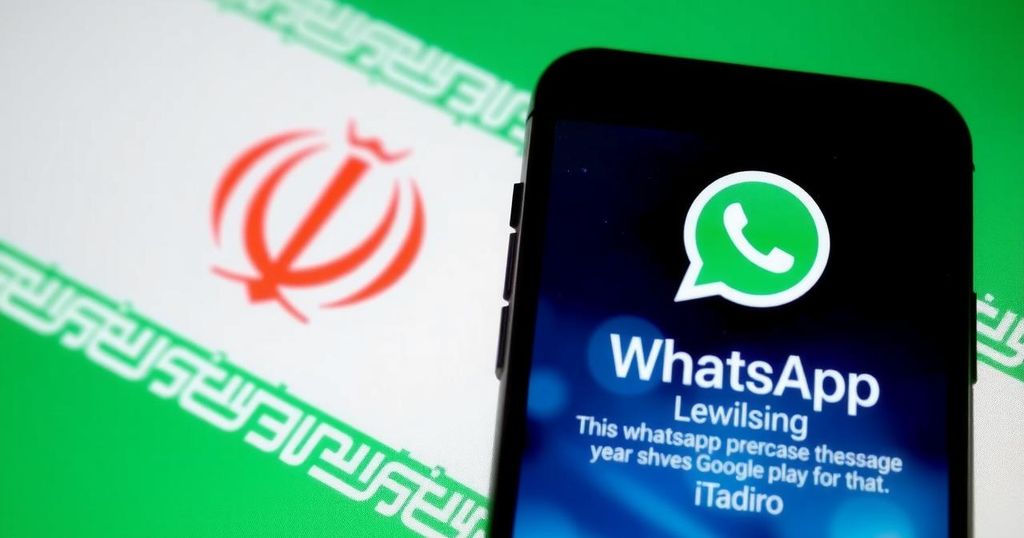Iran has lifted the ban on WhatsApp and Google Play as a first step to reduce internet restrictions, coinciding with the suspension of a stringent hijab law. This shift indicates a potential easing of censorship amidst ongoing protests against government policies, while addressing international concerns over human rights and freedom of expression in the country.
Iran has announced the lifting of restrictions on WhatsApp and Google Play, signaling a significant shift in its internet policy, reported Iranian state media on Tuesday. This decision follows a recent pause in the implementation of a stringent hijab law, indicating a potential easing of governmental controls. The Iranian government, which is known for its rigorous internet censorship, has faced increasing pressure, particularly after widespread protests that utilized social media to mobilize support against the regime’s policies. President Masoud Pezeshkian also emphasized this decision as a first step towards reducing internet limitations. Despite these changes, it is noteworthy that Iranians have historically utilized virtual private networks (VPNs) to overcome existing barriers to social media access.
Additionally, on December 18, the Iranian parliament halted the progression of a strict hijab law that proposed severe penalties for women who defy the dress code. The law, which had garnered approval in September of the previous year, was not forwarded to the government for implementation after negotiations among political officials. Shahram Dabiri, the vice president for parliamentary affairs, confirmed that discussions resulted in this decision, allowing more flexibility for the president in managing relations with Western nations concerning sanctions tied to Iran’s nuclear developments. As the political landscape evolves, President Pezeshkian may seek to influence Supreme Leader Ayatollah Ali Khamenei regarding the hijab law’s status, which remains under the final authority of the Supreme Leader.
The Iranian government maintains one of the strictest regimes of internet censorship in the world, largely stifling access to social media platforms. This has incited significant public outcry, especially during a wave of protests against government policies. Historically, Iranians have utilized methods such as VPNs to circumvent these restrictive measures. Concurrently, issues surrounding women’s rights in Iran, particularly regarding the hijab, have sparked ongoing debate and backlash, leading to proposed legislation that enforces strict adherence to the hijab code but has seen pushback from both citizens and officials. The political dynamics in Iran are shaped by complex interactions between governmental authorities and civil liberties, particularly in the context of international relations and public sentiment.
In summary, Iran’s recent decisions to lift the ban on key digital platforms such as WhatsApp and Google Play represent a pivotal moment in its approach to internet governance. Coupled with the suspension of a controversial hijab law, these steps may suggest a tentative shift towards greater openness. Nonetheless, the underlying issues of censorship and restrictive social policies remain deeply ingrained, indicating that significant challenges lie ahead as the Iranian government navigates its way through domestic pressures and international scrutiny.
Original Source: www.hindustantimes.com






